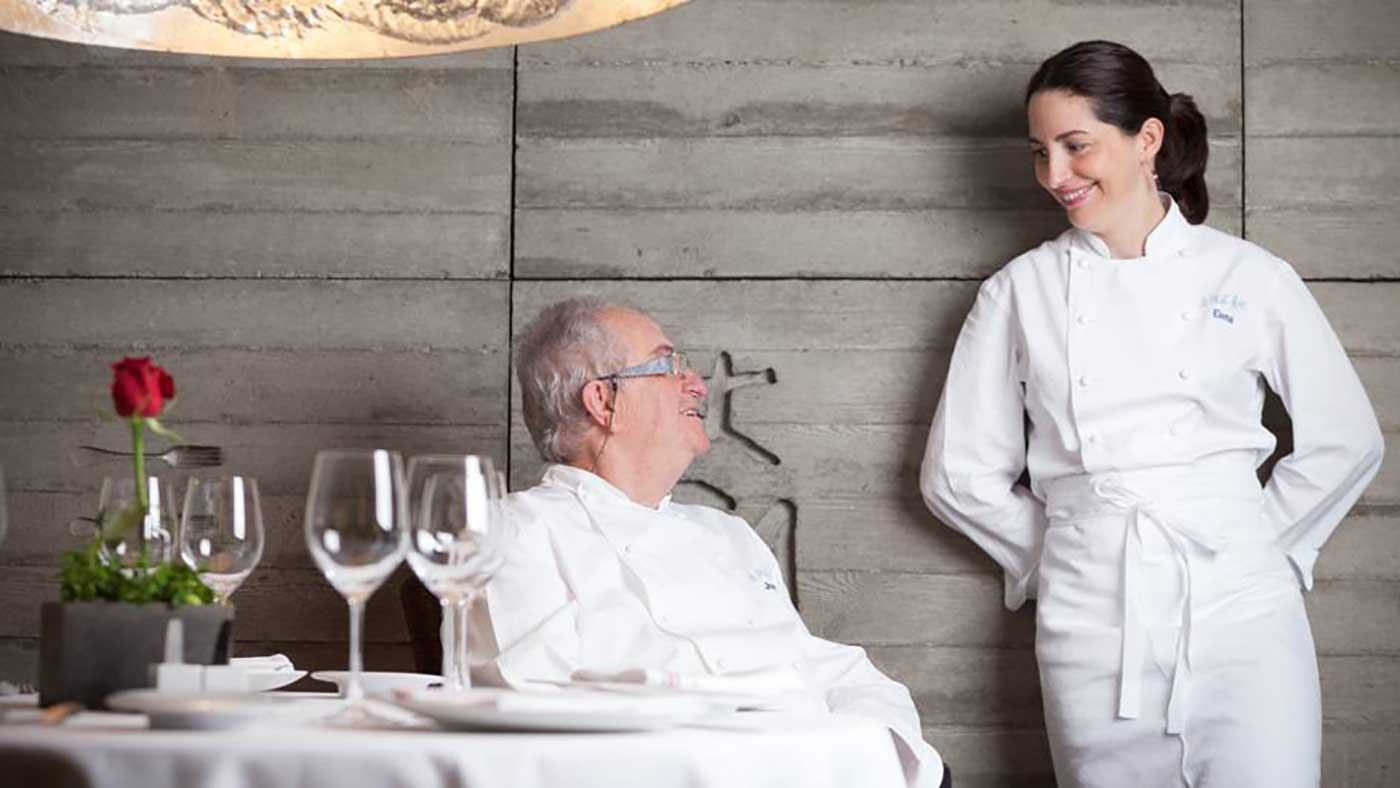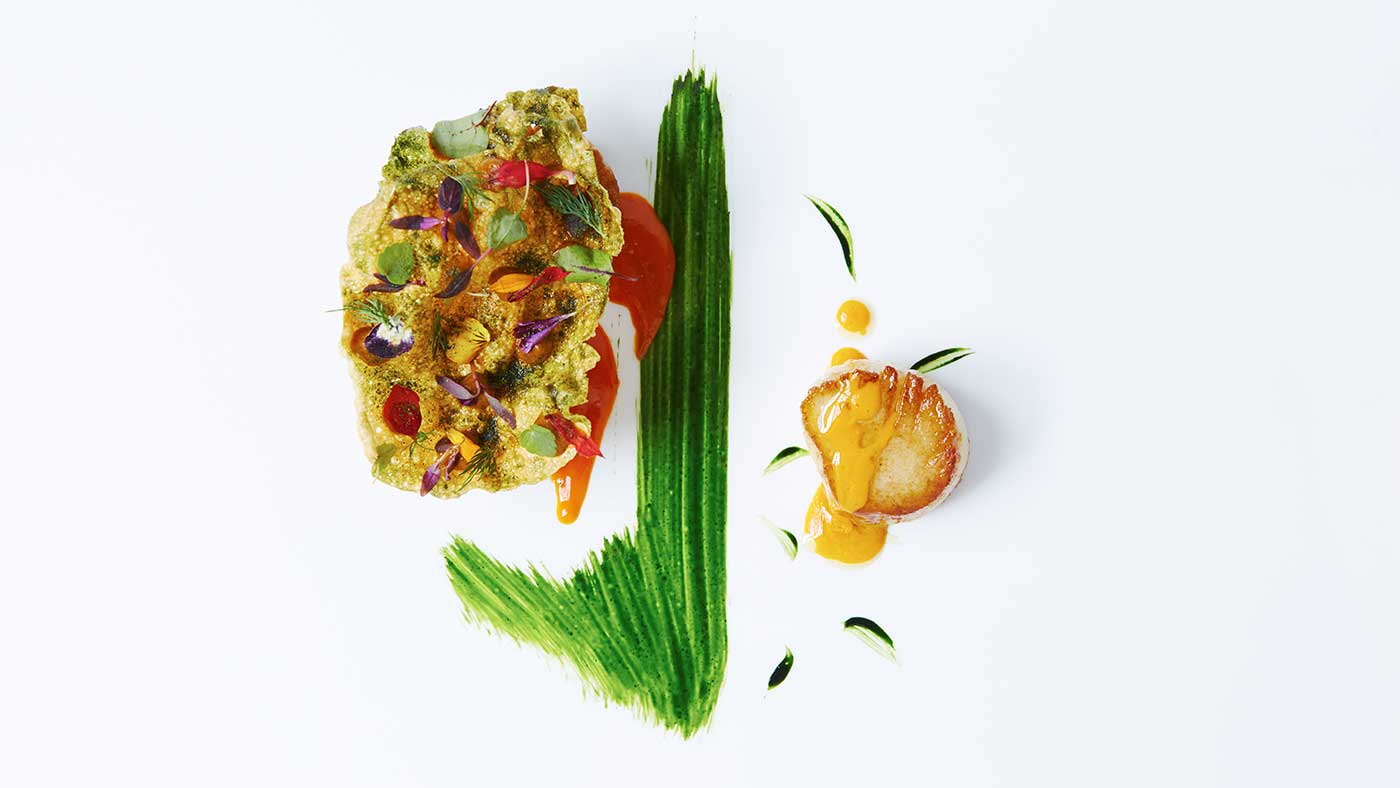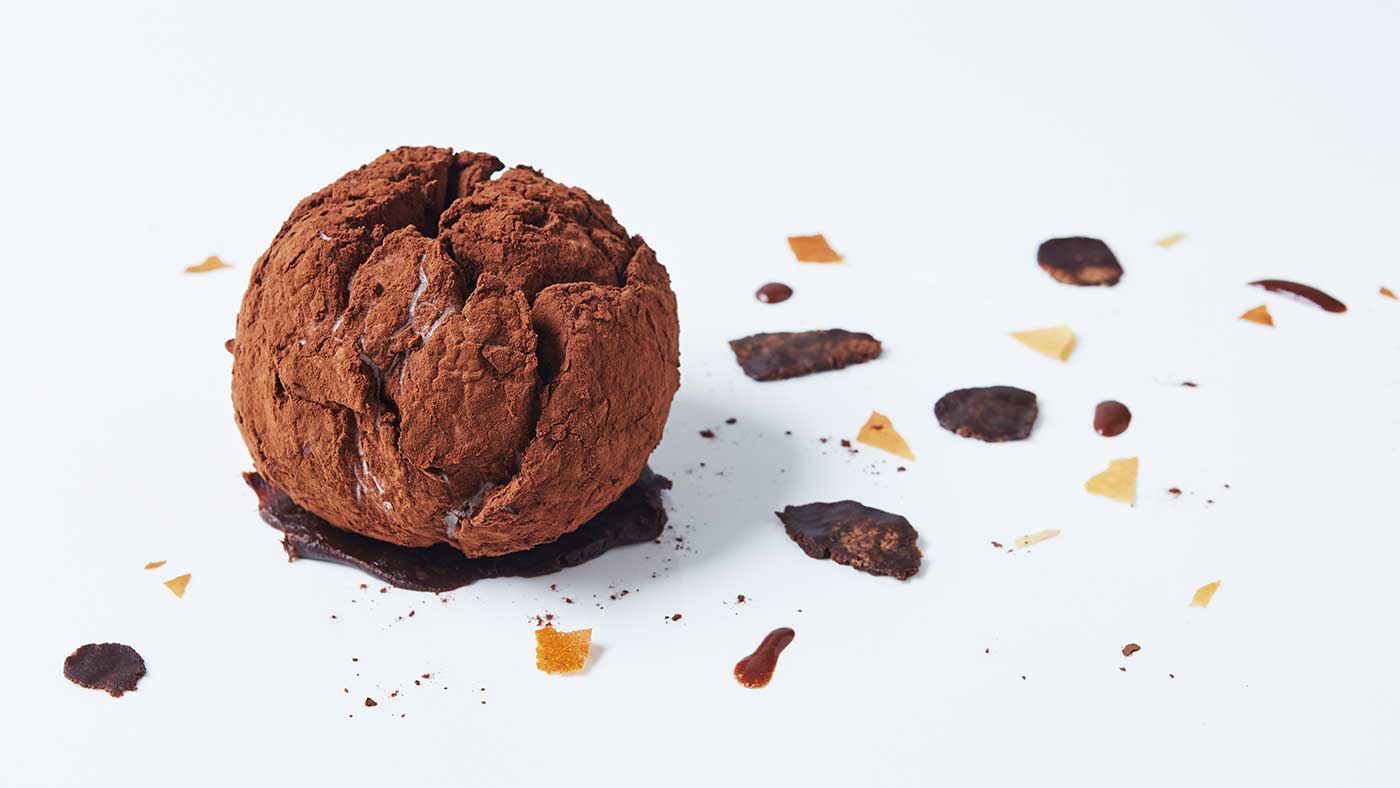Basque and beyond: Juan Mari Arzak on Spanish cuisine
The revered chef picks his favourite areas across Spain and the names to look out for in food from the next generation of his home region
A free daily email with the biggest news stories of the day – and the best features from TheWeek.com
You are now subscribed
Your newsletter sign-up was successful



We are very lucky in Spain because every region has a strong personality, often due to the influence of other nations. For example, Galicia borders Portugal and Andalucia has the influence of North Africa. But in the Basque region, there is some mystery about where the cuisine comes from. Our history has been passed down orally from generation to generation. Here, more than anywhere else, perhaps, cooking is something that's passed down by mothers in the kitchen at home.
There are four sauces that are the cornerstones of Basque cuisine: green (parsley); black (squid ink); red (sweet pepper), and white (garlic and fish stock). The Basque region has three provinces (well, officially three - there is much political debate about that) - Gipuzkoa around San Sebastian, Bizkaia around Bilbao and Araba/Alava, which is inland. The style of Gipuzkoa cuisine is more subtle and refined and the favourite fish there is hake, while in Bizkaia, they love the stronger flavour of cod in a red pepper sauce. In Araba, it's more about earthy flavours - they have good mushrooms and wine.
In 1976, after I'd heard Paul Bocuse lecture about nouvelle cuisine, a group of progressive Basque chefs gathered and we decided on three pillars that would support a revolution in cooking: first, to rediscover forgotten dishes from long ago; second, to go back to the original recipes of favourite dishes that had been corrupted over time, and third, to expand, evolve with creativity and spread the word of Basque cuisine. But because Basque cooking was a family phenomenon, when I began experimenting with the cuisine, it took 20 years for it to become acceptable - and, even then, not to everybody!
The Week
Escape your echo chamber. Get the facts behind the news, plus analysis from multiple perspectives.

Sign up for The Week's Free Newsletters
From our morning news briefing to a weekly Good News Newsletter, get the best of The Week delivered directly to your inbox.
From our morning news briefing to a weekly Good News Newsletter, get the best of The Week delivered directly to your inbox.

A new dawn
When discussing the next generation of Basque chefs, the first name I have to mention is Elena Arzak. My daughter is joint head chef of Arzak in San Sebastian and also of Ametsa with Arzak Instruction at Como The Halkin in London. She won Restaurant magazine's world's best female chef award in 2012 and is very important to the future of Basque cuisine.
Then there's Pablo Loureiro, who has a restaurant called Casa Urola. He is very strong on fish such as turbot and he also has an excellent pintxos (Basque tapas) bar.
Dani Lopez, chef of Kokotxa, meanwhile, takes influences from Andalucia and Asia to enhance Basque dishes. I appreciate that because I have taken ideas from Vietnamese cuisine, which I love.
A free daily email with the biggest news stories of the day – and the best features from TheWeek.com
In Bilbao, Nerua, the restaurant at the Guggenheim museum, is run by Josean Alija, who used to work for Ferran Adria. His dishes are like minimalist works of art - only two or three ingredients served on white plates - and the flavours are intense.

My top Spanish regional cuisines outside the Basque Country
Catalonia has been the location of Restaurant magazine's best restaurant for seven years out of 15 - first with El Bulli and then more recently with El Celler de Can Roca. Albert Adria is also continuing his brother's philosophy at Tickets tapas bar in Barcelona. His Mediterranean cuisine is a bit more robust than that of the Basque region, though, with stronger flavours.
Galicia is a rugged region that sticks out into the wild Atlantic, so it is well known for seafood such as octopus, oysters, mussels and clams, as well as seafood soup. But other dishes go unnoticed - their beef, a variety called rubia gallega, is probably the best in Spain due to the fact it rains so much there so the grass is very rich. And the empanadas - tuna, pork or chicken - are delicious. Galicia has several chefs doing creative things with their regional cuisine. Pepe Solla's restaurant in Pontevedra, Casa Solla, is good for both fish and beef and Casa Marcelo in Santiago de Compostela fuses local cuisine with Japanese-Peruvian styles. Both restaurants have Michelin stars.
Valencia and Murcia are the best regions for growing rice because the water there is so hard and full of minerals. Everybody knows paella, but it is the more delicate, creamy arroz that is the far superior dish.
The Balearics are fantastic for seafood. Majorca has the best lobster in the world, while Formentera has a salmon-pink fish called the raor (razorfish), which I think is my favourite fish of all. It's very small and you can eat the whole thing.
Andalucia is the place for grilled shellfish, particularly langoustines and prawns. Suck the juices out of a grilled prawn's head there and you'll be drinking the best seafood soup in the world.
JUAN MARI ARZAK took over his grandparents' eponymous restaurant in San Sebastian in the 1970s and earned three Michelin stars by 1989. Now aged 74, he is known as the father of modern Basque cuisine, having influenced the likes of Andoni Luis Aduriz at Mugaritz, Martin Berasategui, and his daughter Elena Arzak. In 2013, father and daughter opened a restaurant at Como the Halkin in Belgravia, London, called Ametsa with Arzak Instruction
-
 The Olympic timekeepers keeping the Games on track
The Olympic timekeepers keeping the Games on trackUnder the Radar Swiss watchmaking giant Omega has been at the finish line of every Olympic Games for nearly 100 years
-
 Will increasing tensions with Iran boil over into war?
Will increasing tensions with Iran boil over into war?Today’s Big Question President Donald Trump has recently been threatening the country
-
 Corruption: The spy sheikh and the president
Corruption: The spy sheikh and the presidentFeature Trump is at the center of another scandal